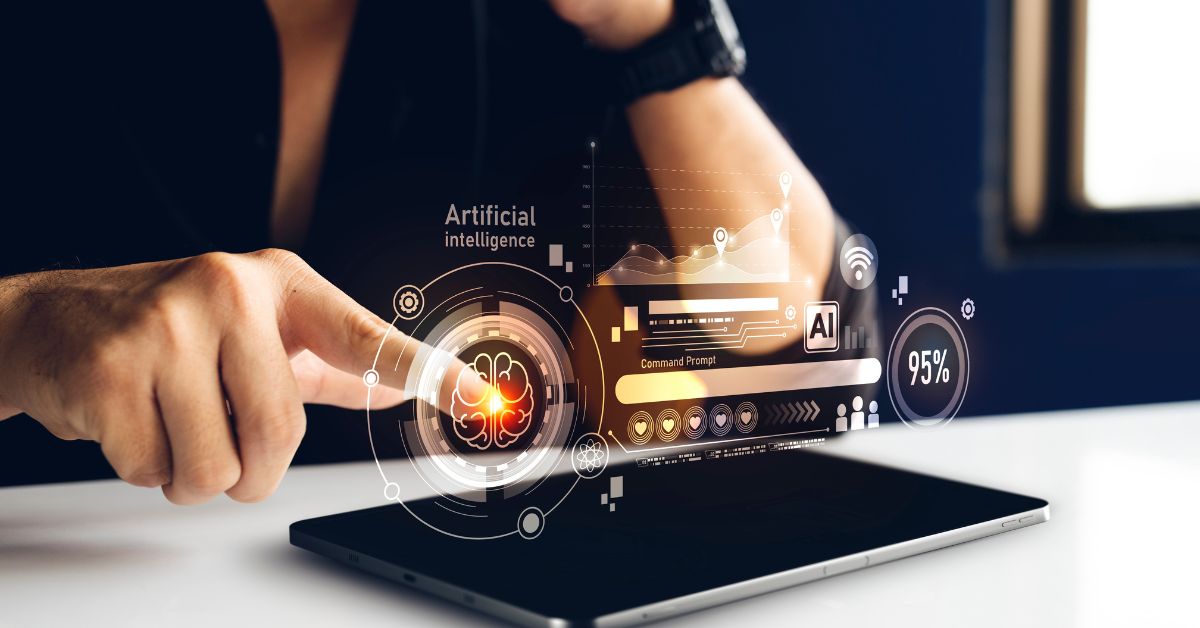Revolutionizing Industries: The Impact of Software Innovation

4 min read
Every year, new software innovations emerge in the software industries, which is continually evolving. Beyond generating fresh ideas, software innovation software identifies new markets and establishes disruptive business models that still need to be considered. When we can leverage innovation software in this way, it becomes a precious tool that can completely restructure established markets.
Revolutionizing Software Industries: The Rise of AI
AI, or artificial intelligence, has recently been a hot issue, with breakthroughs constantly pushing the frontiers of what is possible. However, the effect of AI is to reach unprecedented heights, revolutionizing industries and transforming how we live and work.
AI is substantially impacting the transportation industry by 2023. AI will be able to take over many of the functions currently performed by human drivers, such as navigating highways and avoiding obstructions, as autonomous vehicles evolve. It will promote roadway safety and efficiency and save company costs.
Software Innovation: Technological advancements
Technological advancements and Software Innovation are inevitably altering how we live our lives. Contrast how our parents lived their lives with how we live ours now. These upheavals and transformations are also present in the Software Industries. Technological advancements are transforming many conventional sectors. To be more specific, technology can be used to improve business processes, increase customer satisfaction, and so on. It has influenced almost every industry, although not all industries suffer similarly. Continue reading to find out how technological advancements are affecting certain businesses.
How New Software Innovation is Changing Industries
Several academics and industry professionals have suggested that there has been a ‘software-biased change’ in the nature and direction of innovation, with software development now being a core component of innovation activities across a wide range of industries. Empirical evidence of such a transition at the firm level is currently scarce. In this study, we use fresh and unique firm-level survey data from Sweden on the frequency and nature of software development paired with the Community Innovation Survey (CIS). We show strong evidence for a software bias in innovation, with software development related to a higher likelihood of introducing Software Innovation and higher innovation sales among enterprises in both the manufacturing and Software industries.
- Many industries have seen increased efficiency and innovation due to software platforms, while others have been disrupted or destroyed, and new enterprises have emerged.
- Because of the malleability of code and their core activities, which allows them to march across industry borders, and because their multi-sided nature allows them to spawn lively ecosystems of complementary, AI software solutions are potent engines of change.
- Managing software platforms entails much more than just developing technologies. It requires skills in negotiating cooperation and rivalry, developing innovative business models, and forecasting industry competition.
Revolutionizing Industries: Industries Where AI Will Have the Most Impact
Artificial intelligence (AI) is changing the method of business work and is here to stay. AI has the potential to disrupt companies in unprecedented ways due to its ability to analyze massive volumes of data, automate processes, and make predictions.
- Healthcare Industry
- E-commerce and Retail
- Finance Industry
- Manufacturing and Logistics
- Transforming education
- Transportation
- Energy and Utility Sectors
- Marketing sectors
- Agriculture and Farming
Industry Innovations: How Technology Companies are Revolutionizing R&D
Every successful firm relies on innovation. Companies that need to innovate lag behind their competition quickly and risk becoming obsolete. Technology businesses are leading the way in innovation in today’s fast-paced world, and their impact is felt across all industries. Research and development (R&D) is one area where technology corporations are making a considerable influence. With advances in AI, ML, and big data, technology companies are discovering new methods to enhance efficiency, cut costs, and expedite the development of new goods and services.
Artificial Intelligence
Artificial intelligence (AI) is a disruptor in research and development. Software companies may use AI to swiftly and reliably analyze massive amounts of data, uncover patterns and insights, and make informed decisions. It has resulted in substantial advances in product creation, ranging from medication discovery to software development.
For example, artificial intelligence is being utilized in the pharmaceutical business to find prospective medication candidates faster and more efficiently than ever. Researchers can discover which chemicals are most likely to be effective by analyzing enormous volumes of data from clinical trials, decreasing the time and expense of bringing new treatments to market.
Machine Learning
AI’s subset of machine learning (ML) involves using data to teach machines things without explicitly programming them. It has numerous uses in research and development, from anticipating client behavior to optimizing supply chain operations.
In the retail industry, for example, machine learning is used to anticipate which things people will most likely purchase. Retailers can design focused marketing campaigns and improve product suggestions by analyzing data from previous purchases, resulting in more excellent sales and consumer happiness.
Machine learning is to optimize supply chain processes in the manufacturing business. Manufacturers can detect inefficiencies and bottlenecks in manufacturing processes and logistics by analyzing data from those processes and logistics, resulting in lower costs and higher product quality.
Big Data
“Big data” refers to the vast volumes of data collected daily, ranging from social media posts to sensor measurements. By analyzing this data, companies can acquire significant insights into customer behavior, market trends, and more.
Big data is being used in the finance industry to detect fraud and improve risk management. Banks and other financial institutions can see suspicious activity and prevent fraudulent transactions by analyzing massive volumes of economic data, saving losses, and enhancing client trust.
Big data is to enhance patient outcomes in the healthcare industry. Researchers can find patterns and insights that can help improve treatments and develop novel cures by analyzing data from electronic health records.
Conclusion
Technology firms are pioneering the change in research and development. These software industries are discovering new methods to enhance productivity, cut costs, and speed up the creation of new goods and services thanks to developments in AI, machine learning, and big data. We should expect even more intriguing R&D advancements in the coming years as these technologies continue to evolve.
Published: July 13th, 2023





